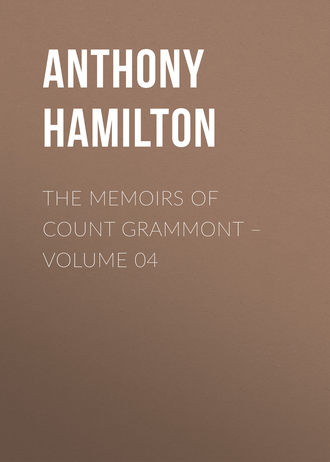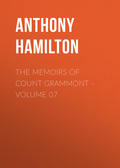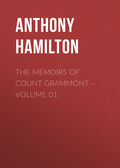
Anthony Hamilton
The Memoirs of Count Grammont – Volume 04
The duke was for some time entirely taken up with the pleasures of the chase, and only now and then engaged in those of love; but his taste having undergone a change in this particular, and the remembrance of Lady Robarts wearing off by degrees, his eyes and wishes were turned towards Miss Brook; and it was in the height of this pursuit that Lady Chesterfield threw herself into his arms, as we shall see by resuming the sequel of her adventures.
The Earl of Bristol, ever restless and ambitious, had put in practice every art, to possess himself of the king's favour. As this is the same Digby whom Count Bussy mentions in his annals, it will be sufficient to say that he was not at all changed: he knew that love and pleasure had possession of a master, whom he himself governed, in defiance of the chancellor; thus he was continually giving entertainments at his house; and luxury and elegance seemed to rival each other in those nocturnal feasts, which always lead to other enjoyments. The two Miss Brooks, his relations, were always of those parties; they were both formed by nature to excite love in others, as well as to be susceptible of it themselves; they were just what the king wanted: the earl, from this commencement, was beginning to entertain a good opinion of his project, when Lady Castlemaine, who had lately gained entire possession of the king's heart, was not in a humour, at that time, to share it with another, as she did very indiscreetly afterwards, despising Miss Stewart. As soon, therefore, as she received intimation of these secret practices, under pretence of attending the king in his parties, she entirely disconcerted them; so that the earl was obliged to lay aside his projects, and Miss Brook to discontinue her advances. The king did not even dare to think any more on this subject; but his brother was pleased to look after what he neglected; and Miss Brook accepted the offer of his heart, until it pleased heaven to dispose of her otherwise, which happened soon after in the following manner.
Sir John Denham, loaded with wealth as well as years, had passed his youth in the midst of those pleasures which people at that age indulge in without restraint; he was one of the brightest geniuses England ever produced, for wit and humour, and for brilliancy of composition: satirical and free in his poems, he spared neither frigid writers, nor jealous husbands, nor even their wives: every part abounded with the most poignant wit, and the most entertaining stories; but his most delicate and spirited raillery turned generally against matrimony; and, as if he wished to confirm, by his own example, the truth of what he had written in his youth, he married, at the age of seventy-nine, this Miss Brook of whom we are speaking, who was only eighteen.
The Duke of York had rather neglected her for some time before; but the circumstance of so unequal a match rekindled his ardour; and she, on her part, suffered him to entertain hopes of an approaching bliss, which a thousand considerations had opposed before her marriage: she wished to belong to the court; and for the promise of being made lady of the bedchamber to the duchess, she was upon the point of making him another promise, or of immediately performing it, if required, when, in the middle of this treaty, Lady Chesterfield was tempted, by her evil genius, to rob her of her conquest, in order to disturb all the world.
However, as Lady Chesterfield could not see the Duke of York, except in public assemblies, she was under the necessity of making the most extravagant advances, in order to seduce him from his former connection; and as he was the most unguarded ogler of his time, the whole court was informed of the intrigue before it was well begun.
Those who appeared the most attentive to their conduct were not the least interested in it. Hamilton and Lord Chesterfield watched them narrowly; but Lady Denham, vexed that Lady Chesterfield should have stepped in before her, took the liberty of railing against her rival with the greatest bitterness. Hamilton had hitherto flattered himself that vanity alone had engaged Lady Chesterfield in this adventure; but he was soon undeceived, whatever her indifference might have been when she first commenced this intrigue. We often proceed farther than we at first intended, when we indulge ourselves in trifling liberties which we think of no consequence; for though perhaps the heart takes no part at the beginning, it seldom fails to be engaged in the end.
The court, as we have mentioned before, was an entire scene of gallantry and amusements, with all the politeness and magnificence which the inclinations of a prince naturally addicted to tenderness and pleasure, could suggest: the beauties were desirous of charming, and the men endeavoured to please: all studied to set themselves off to the best advantage: some distinguished themselves by dancing; others by show and magnificence; some by their wit, many by their amours, but few by their constancy. There was a certain Italian at court, famous for the guitar: he had a genius for music, and he was the only man who could make anything of the guitar: his style of play was so full of grace and tenderness, that he would have given harmony to the most discordant instruments. The truth is, nothing was so difficult as to play like this foreigner. The king's relish for his compositions had brought the instrument so much into vogue, that every person played upon it, well or ill; and you were as sure to see a guitar on a lady's toilet as rouge or patches. The Duke of York played upon it tolerably well, and the Earl of Arran like Francisco himself. This Francisco had composed a saraband, which either charmed or infatuated every person; for the whole guitarery at court were trying at it; and God knows what an universal strumming there was. The Duke of York, pretending not to be perfect in it, desired Lord Arran to play it to him. Lady Chesterfield had the best guitar in England. The Earl of Arran, who was desirous of playing his best, conducted his Royal Highness to his sister's apartments: she was lodged at court, at her father's, the Duke of Ormond's; and this wonderful guitar was lodged there too. Whether this visit had been preconcerted or not, I do not pretend to say; but it is certain that they found both the lady and the guitar at home: they likewise found there Lord Chesterfield, so much surprised at this unexpected visit, that it was a considerable time before he thought of rising from his seat to receive them with due respect.
Jealousy, like a malignant vapour, now seized upon his brain: a thousand suspicions, blacker than ink, took possession of his imagination, and were continually increasing; for, whilst the brother played upon the guitar to the duke, the sister ogled and accompanied him with her eyes, as if the coast had been clear, and no enemy to observe them. This saraband was at least repeated twenty times: the duke declared it was played to perfection: Lady Chesterfield found fault with the composition; but her husband, who clearly perceived that he was the person played upon, thought it a most detestable piece. However, though he was in the last agony at being obliged to curb his passion while others gave a free scope to theirs, he was resolved to find out the drift of the visit; but it was not in his power: for, having the honour to be chamberlain to the queen, a messenger came to require his immediate attendance on her majesty. His first thought was to pretend sickness: the second to suspect that the queen, who sent for him at such an unseasonable time, was in the plot; but at last, after all the extravagant ideas of a suspicious man, and all the irresolutions of a jealous husband, he was obliged to go.
We may easily imagine what his state of mind was when he arrived at the palace. Alarms are to the jealous what disasters are to the unfortunate: they seldom come alone, but form a series of persecution. He was informed that he was sent for to attend the queen at an audience she gave to seven or eight Muscovite ambassadors: he had scarce begun to curse the Muscovites, when his brother-in-law appeared, and drew upon himself all the imprecations he bestowed upon the embassy: he no longer doubted his being in the plot with the two persons he had left together, and in his heart sincerely wished him such recompense for his good offices as such good offices deserved. It was with great difficulty that he restrained himself from immediately acquainting him what was his opinion of such conduct: he thought that what he had already seen was a sufficient proof of his wife's infidelity; but before the end of the very same day, some circumstances occurred which increased his suspicions, and persuaded him that they had taken advantage of his absence, and of the honourable officiousness of his brother-in-law. He passed, however, that night with tranquillity; but the next morning, being reduced to the necessity either of bursting or giving vent to his sorrows and conjectures, he did nothing but think and walk about the room until Park-time. He went to court, seemed very busy, as if seeking for some person or other, imagining that people guessed at the subject of his uneasiness: he avoided everybody, but at length meeting with Hamilton, he thought he was the very man that he wanted; and, having desired him to take an airing with him in Hyde Park, he took him up in his coach, and they arrived at the Ring, without a word having passed between them.
Hamilton, who saw him as yellow as jealousy itself, and particularly thoughtful, imagined that he had just discovered what all the world had perceived long before; when Chesterfield, after a broken, insignificant preamble, asked him how he succeeded with Lady Castlemaine. Hamilton, who very well saw that he meant nothing by this question, nevertheless thanked him; and as he was thinking of an answer: "Your cousin," said the earl, "is extremely coquettish, and I have some reason to suppose she is not so prudent as she ought to be." Hamilton thought the last charge a little too severe; and as he was endeavouring to refute it: "Good God!" said my lord, "you see, as well as the whole court, what airs she gives herself: husbands are always the last people that are spoken to about those affairs that corcern them the most; but they are not always the last to perceive it themselves: though you have made me your confidant in other matters, yet I am not at all surprised you have concealed this from me; but as I flatter myself with having some share in your esteem, I should be sorry you should think me such a fool as to be incapable of seeing, though I am so complaisant as not to express my sentiments: nevertheless, I find that affairs are now carried on with such barefaced boldness, that at length I find I shall be forced to take some course or other. God forbid that I should act the ridiculous part of a jealous husband: the character is odious; but then I do not intend, through an excess of patience, to be made the jest of the town. Judge, therefore, from what I am going to tell you, whether I ought to sit down unconcerned, or whether I ought to take measures for the preservation of my honour.
"His royal highness honoured me yesterday by a visit to my wife." Hamilton started at this beginning. "Yes," continued the other, "he did give himself that trouble, and Lord Arran took upon himself that of bringing him: do not you wonder, that a man of his birth should act such a part? What advancement can he expect from one who employs him in such base services? But we have long known him to be one of the silliest creatures in England, with his guitar, and his other whims and follies." Chesterfield, after this short sketch of his brother-in-law's merit, began to relate the observations he had made during the visit, and asked Hamilton what he thought of his cousin Arran, who had so obligingly left them together. "This may appear surprising to you," continued he, "but hear me out, and judge whether I have reason to think that the close of this pretty visit passed in perfect innocence. Lady Chesterfield is amiable, it must be acknowledged; but she is far from being such a miracle of beauty as she supposes herself: you know she has ugly feet; but perhaps you are not acquainted that she has still worse legs." "Pardon me," said Hamilton, within himself: and the other continuing the description: "Her legs," said his lordship, "are short and thick; and, to remedy these defects as much as possible, she seldom wears any other than green stockings."






